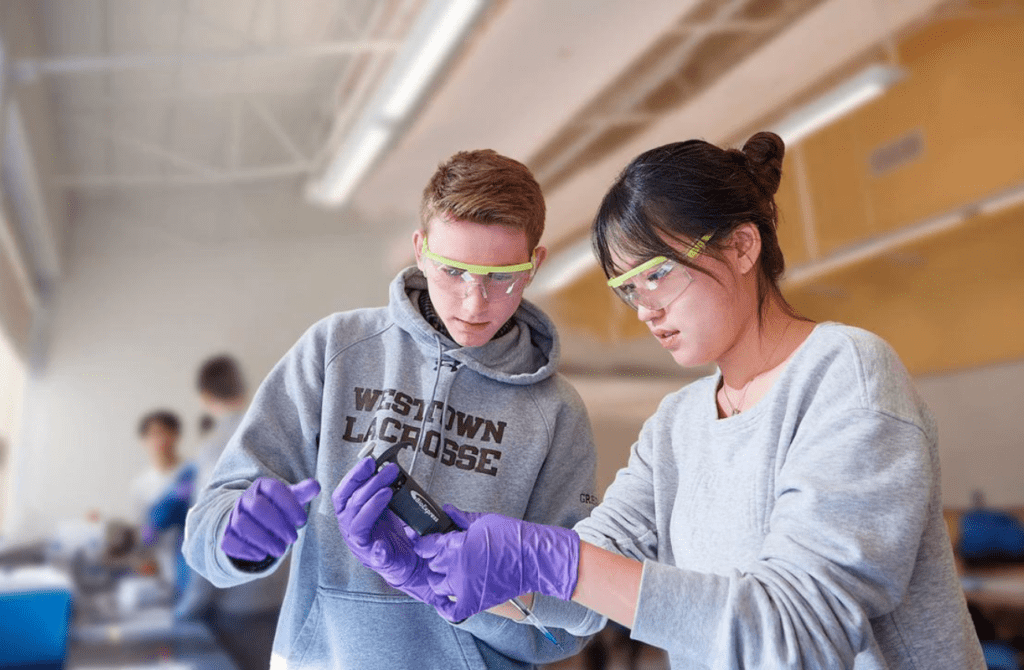Five Habits of Highly Successful Students
Main Line educators share some of the habits of highly successful students for all parents who want to help their child excel in school.

Being a straight-A student is great, but certainly not the most important goal for our children’s education. In the long run, fostering a love of learning will probably serve them best of all. But let’s face it, good grades matter. Especially for college-bound students as they enter middle and high school when the curriculum is more demanding. Not all kids naturally excel at school, so how can we help our kids become successful students?
The elementary school years are an ideal time to help your children build the learning habits that will help them succeed in school. Between the ages of 6 and 12, children are building the foundation for their future academic success and are receptive to forming good learning habits. However, it is never too late to develop the mindset, skills, and routines for learning! Older children and teenagers can still learn to be successful students at any stage of their education.
To get some advice from educators with first-hand experience, we spoke to folks at a few area schools: Friends Central, a pre-K through 12 Quaker school in Wynnewood; AIM Academy, a school for bright students with learning disabilities in Conshohocken; Jack M. Barack Hebrew Academy, a pluralistic Jewish day school for students in grades 6–12 in Bryn Mawr, and Westtown School, a pre-K through 12 Quaker, coeducational, college preparatory day and boarding school in West Chester. These educators shared some of the qualities they’ve observed among high-achieving students in their respective schools. We think these are useful tips for all parents who want to help their child excel in school.
1. Self-Advocacy
Simply put, self-advocacy is the ability to communicate your needs. Among the educators we surveyed, this was the habit, or attribute, most cited for academic success! “The best students are those that know when they need help,” says Matthew Dorsch, Director of the Robert Saligman Middle School at Jack M. Barrack Hebrew Academy. “It takes courage to recognize our own limitations and reach out. Asking for help is a sign of a strong scholar with great self-awareness.”

Self-advocacy is one of the most essential skills of successful students, not only because students get the help they need, but also because it enhances their learning process. “High-achieving students are comfortable asking for help and seeking additional support or input from their teachers and fellow students,” says Alexa Quinn, Associate Head of School at Friends’ Central School. “It seems counterintuitive that high-achieving students would need help, but by asking for clarification or further explanation, students deepen their understanding and the connections they are able to make.”
Alyson Longmore, an Upper School Math Teacher at AIM Academy shared a similar opinion in that successful students advocate for themselves and learn how to ask for assistance. “Even some of my top students in the past might have needed a little extra practice with an occasional topic of study,” she says. “It is important that students are able to communicate with their teachers when they might need additional support.”
Finally, helping your student get a handle on his or her learning is an important basis for self-advocacy. “Students who understand their learning styles tend to excel,” says Catie Nicholson, Westtown School’s Lower School Learning and Literacy Specialist. “They are strong self advocates and can identify what they need to succeed. These students have internalized different strategies that have helped them succeed in an academic setting.”
2. Curiosity and Critical Thinking
Kids are curious by nature, right? Maintaining their inquisitive nature is the foundation of being a lifelong learner. Curiosity fosters an active and eager attitude towards learning and that helps students engage in their studies. Curious kids ask “why” and “how,” which helps them develop problem-solving and critical thinking skills, as well as a deeper understanding of a subject matter.

In fact, these were the first attributes that Alexa Quinn cited as a habit of successful students. She says, “The qualities that I’ve observed in all high-achieving students are curiosity and critical thinking — a sense of wanting to explore and learn about the world, but also to ask questions about what they are learning that push their understanding to a deeper level.”
Catie Nicholson says, “Students who tend to be higher achievers have an inherent thirst to learn. They are curious and willing to take risks, and oftentimes won’t stop until they are satisfied with an answer.” She says parents and guardians can play an integral role in helping to shape their child’s love of learning by supporting their education, without doing it for them. This way, students discover their own wants and desires, and how to achieve them.
3. Goal-Setting
For hardworking, successful adults, goal-setting is probably second nature. But for students, setting and achieving goals is a habit that takes practice. Encouraging students to set goals for themselves is one of the first steps in self-regulated learning, according to Stephanie Toro, in Guiding Students to Set Academic Goals on Edutopia. She says helping kids set age-appropriate, academic goals promotes intention, motivation, and a sense of self-responsibility.

What’s more, students who are motivated and goal-oriented tend to find the most success in school, according to Alyson Longmore. “These students set both long-term and short-term goals for themselves throughout the school year. Something as simple as working towards completing their homework for an entire week or studying for 20 minutes each day for a quiz are just two examples of short-term goals that successful students have made in the past.”
As students reach the upper grades in school, setting goals becomes an important habit for success. “I’ve observed that many high-achieving students set goals for themselves to keep motivated and to provide a purpose for the time and effort they devote to their academic work,” says Alexa Quinn. “These goals provide anchors when their work is challenging or when they need to push themselves.”
4. Perseverance
Perseverance is the ability to persist in a task, despite difficulties, challenges, and failures along the way. Alyson Longmore says perseverance is a trait that sets successful students apart in terms of achievement. “Tackling a challenge head-on and not giving up when a specific task becomes difficult is a valuable life skill,” Alyson says. Instead of giving up when a problem in their math homework is hard, resourceful students will review their class notes, find a helpful YouTube video, or seek other means to figure it out. “These are all important aspects of the learning process that lead students to a higher level of their understanding.”

Matthew Dorsch says that students who have persistence will come through in the clutch when the work is difficult. “It’s one thing when knowledge comes easily,” he says. “But when students push themselves to new levels of discomfort and exploration, they open the door to higher levels of thinking. Those who are comfortable with being uncomfortable and learn to push through the challenge, find themselves in place to thrive.”
5. Time Management
Using one’s time effectively or productively is a habit that students can learn in order to improve their academic performance. Some of the key elements of time management include prioritizing tasks, creating schedules, setting goals and breaking them down into smaller tasks, and allocating time for completion.

The Westtown Middle School places great value in a student’s time management skills and builds it into the curriculum. “A successful middle school student has a strong sense of time and how to use it,” says Dot Salisbury, a Middle School Learning Specialist at Westtown School. “[So] the middle school division at Westtown focuses on these skills in their Learning Center and initiates executive function coaching in their Student Learning Community Seminar course.”
Alexa Quinn maintains that good time management skills may not come naturally to everyone, but are a worthwhile pursuit. “Although there are many high-achieving students who don’t have strong executive functioning skills, being able to manage time and organize oneself effectively is incredibly helpful for achieving academic success,” she says. “When a student can manage their time and organize their materials well, it leaves them more bandwidth for their academic work and for other activities in which they might be interested.”
A Guide for Success
We found the responses of these local educators compelling and feel they can serve as a guide for parents who want to support their own children’s academic success. Cultivating some or all of these traits in your student will likely benefit them on their educational journey. Of course, every student is unique and Alexa Quinn reminds us that “there should not be a one-size-fits-all approach or definition of success for students.” Overall, she says, “what we should do for all students is encourage them to understand their personal and academic strengths. Then they are able to identify habits and strategies that will support them in achieving at the highest possible level.”
Lead photograph by Yan Krukau via Pexels.
Find the BEST schools, preschools, and enrichment programs around the Main Line and beyond in the Main Line Education Guide.



NO COMMENTS